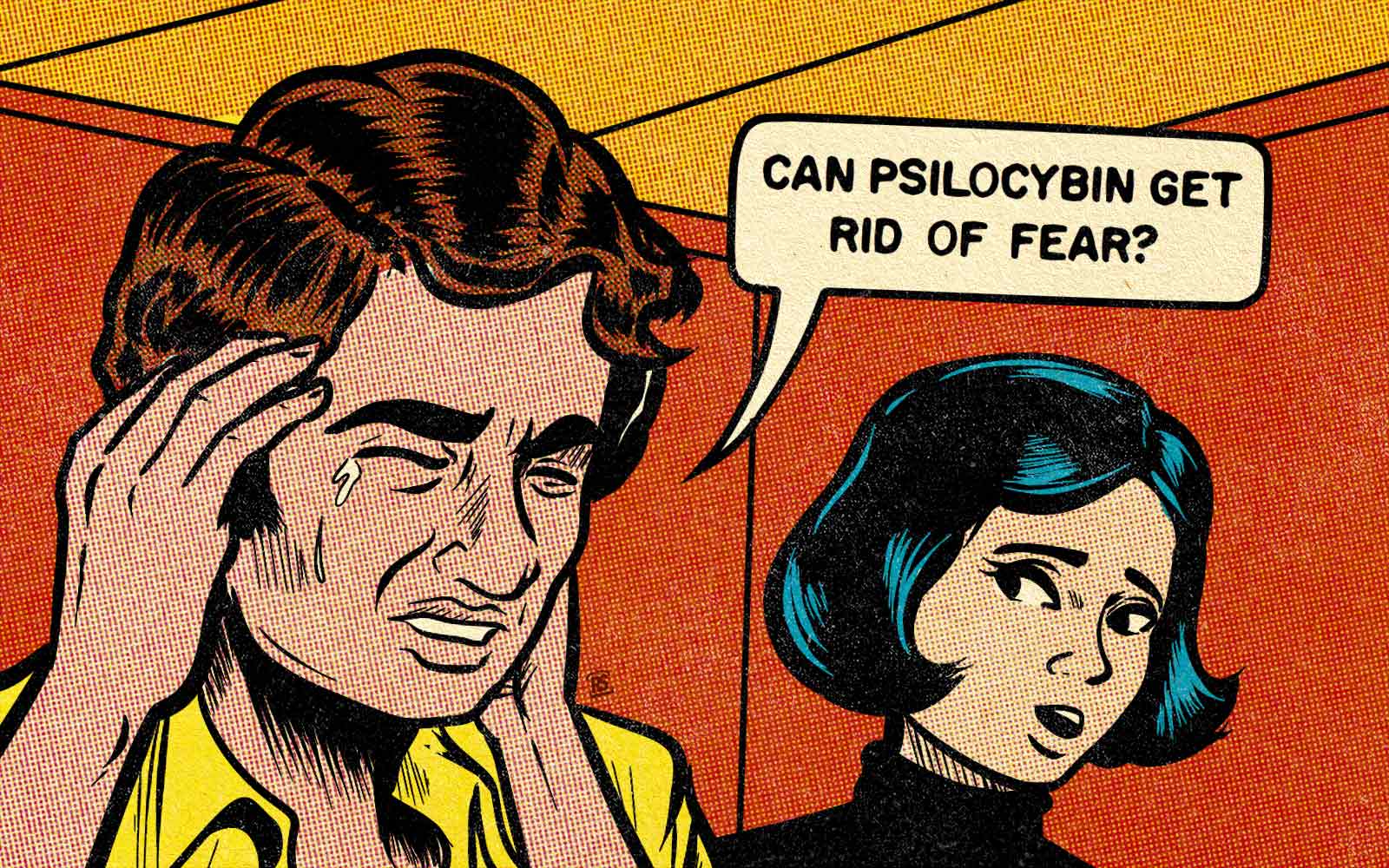Psilocybin is at the forefront of so many amazing discoveries, especially in the mental health industry. And in the last decade, researchers have been curious to know if psilocybin can erase feelings of fear.
According to a study conducted in 2013, the active element in psilocybin mushrooms may erase traumatic memories and promote new brain cell formation in mice. In the study, mice that received an electric shock followed by a tiny dosage of the hallucinogen psilocybin lost their terrified response to a sound associated with a painful electric shock faster than mice who were not given the drug.
“They stopped freezing; they lost their fear,” reported co-author Dr. Juan Sanchez-Ramos, who is a professor of movement disorders at the University of South Florida.
Although the study only monitored the effects on mice, it raised the possibility of low doses being used to treat PTSD (and further studies have garnered positive results).
How It Affects the Hippocampus
Psilocybin — the main chemical in magic mushrooms — has been shown in previous research to elicit mystical experiences that can improve mood, attitude, and behavior, as well as permanently alter personality. Other research has found that psilocybin reduces brain activity. Sanchez-Ramos and his colleagues, on the other hand, were curious about the impact of psilocybin in the creation of short-term memories. The researchers sought to see how the component affected the formation of fear-based memories since it attaches to a receptor in the brain that encourages new brain cell growth and short-term memory formation.
Because psilocybin binds to a serotonin receptor in the hippocampus — a part of the brain that gives rise to new neurons — Dr. Sanchez-Ramos and his colleagues worried about its function in the creation of short-term memories.
The researchers put this theory to the test by playing an audio tone and shocking the mice. The mice quickly connected the tone with the shock, and when they heard it, they would freeze. However, some of the mice stopped freezing, and those were the ones that were given a tiny amount of psilocybin, which Sanchez-Ramos believes was probably too small to generate psychedelic effects, but since mice can’t communicate about their altered states of consciousness, we can’t be totally sure.
Following that, the researchers repeated the sound without stunning the mice. The mice initially froze when they heard it, but after a while, they began to move around normally, demonstrating that the sound was no longer connected with the fear of being shocked. The mice who had been given the hallucinogen returned to normal activity faster than those who had not, implying that they had overcome their fear more quickly. Their brains also exhibited a large increase in new brain cells at the same period.
“Psilocybin enhanced forgetting of the unpleasant memory associated with the tone,” Dr. Sanchez-Ramos explained. “The mice more quickly dissociated the shock from the stimulus that triggered the fear response and resumed their normal behavior.”
How It Affects Humans
In 2016, a study led by Roland R. Griffiths of Johns Hopkins University found a substantial and sustained decrease in anxiety and depression in patients with life-threatening cancer.
Griffiths has been a long-time supporter of how psychedelics can potentially treat a number of mental agonies including depression, substance abuse, PTSD, and even the fear of inevitable death.
In this study, which was conducted alongside Stephen Ross, NYU Langone Center of Excellence on Addiction’s clinical director, 80 patients with life-threatening cancer were given laboratory-synthesized psilocybin in a tightly controlled setting, along with limited psychological counseling. Here were the results:
“When administered under psychologically supportive, double-blind conditions, a single dose of psilocybin produced substantial and enduring decreases in depressed mood and anxiety along with increases in quality of life and decreases in death anxiety in patients with a life-threatening cancer diagnosis. Ratings by patients themselves, clinicians, and community observers suggested these effects endured at least 6 months. The overall rate of clinical response at 6 months on clinician-rated depression and anxiety was 78% and 83%, respectively. A multisite study in a larger and more diverse patient population should be conducted to establish the generality and safety of psilocybin treatment of psychological distress associated with life-threatening cancer.”
While Griffiths and Ross know that psychedelics will probably never be available over-the-counter, they were astonished by the results. “It is simply unprecedented in psychiatry that a single dose of a medicine produces these kinds of dramatic and enduring results,” said Ross. Despite restrictions, the two can see a promising future where psychedelics can be more widely used in controlled, clinical settings.















